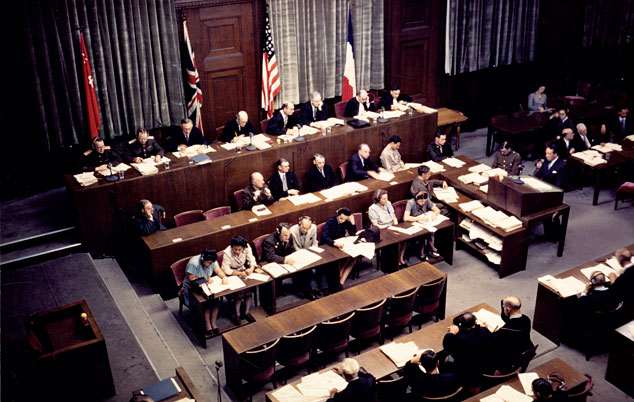
Even before World War II was over, the Allies resolved to put the major officials responsible for Nazi war crimes on trial. In the Moscow Declaration of November 1, 1943, they undertook to extradite Germans who had perpetrated these crimes in the occupied territories to the affected countries after the war, in order to prosecute them in accordance with the laws applicable at the site of their crimes. The Allies resolved to prosecute the major war criminals, whose crimes were not limited to the territory of a single state, on the basis of uniform legal standards.
Following Germany's unconditional surrender, the victorious powers – the U.S., USSR, Great Britain, and France – agreed in London on August 8, 1945, to establish an International Military Tribunal (IMT). For the first time in history, an international tribunal was authorized to hold leading representatives of a state personally accountable for crimes under international law. Berlin was declared as the permanent seat of the tribunal, and the trial against the "major war criminals" would be held in Nuremberg.



